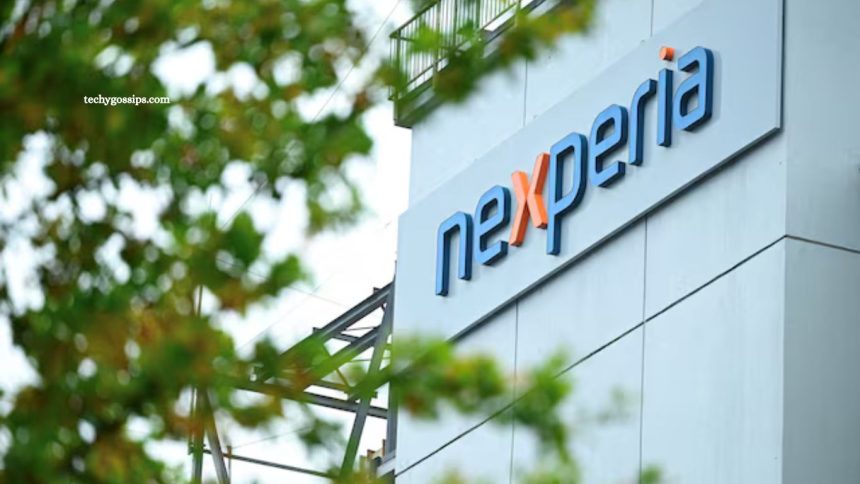Nexperia, the global semiconductor manufacturer, is facing a complex supply-chain challenge involving its Chinese operations and its Dutch parent company. The China unit recently announced that it maintains sufficient inventories of both finished products and work-in-progress items, following a halt in wafer shipments from its Dutch parent. This development has raised questions about the stability of the company’s supply chain and its potential impact on the global electronics and automotive industries.
- Company Background
- Supply Suspension Overview
- Assurance of Stability
- Global Supply Chain Implications
- Governance and Geopolitics
- Contingency Measures and Strategic Response
- Industry Implications
- Looking Ahead
- Key Takeaways
- Frequently Asked Questions
- What caused Nexperia’s Dutch parent to suspend wafer shipments?
- Does Nexperia China have enough inventory?
- Which industries are affected by this supply disruption?
- How is Nexperia China handling the situation?
- Could this supply issue impact global chip availability?
- What role does corporate governance play in this dispute?
- What is the outlook for resolving the supply disruption?
- Conclusion
Company Background
Nexperia, originally part of a larger European semiconductor enterprise, specializes in power-control chips, transistors, diodes, and other critical components used in automotive, industrial, and consumer electronics. Its operations span multiple continents, with the Dutch headquarters managing the parent company and the China unit overseeing production and assembly in Asia.
The company’s global footprint and strategic position in the semiconductor supply chain make it a critical player, especially in sectors that rely on high-volume, just-in-time production models. Any disruption to its operations can have far-reaching consequences for manufacturers and consumers alike.
Read More: Nvidia Surges to $400 Billion as Jensen Huang Drives Major Deals.
Supply Suspension Overview
The Dutch parent company recently suspended wafer shipments to the Chinese assembly plant, citing internal disagreements over compliance with payment and contractual obligations. In response, Nexperia’s China unit emphasized that the suspension did not threaten immediate production, noting that inventory levels are sufficient to meet customer demand through the end of the year and into the next.
The Chinese unit also indicated that contingency measures are underway, including evaluating alternative wafer suppliers to reduce dependence on the Dutch parent company. These steps are designed to ensure production continuity and maintain customer confidence.
Assurance of Stability
In its official statement, the China unit stressed its commitment to operational continuity. It highlighted that current stock levels can support production schedules for the foreseeable future, and that proactive measures are being implemented to mitigate any potential disruptions.
This assurance is particularly significant for industries such as automotive manufacturing, where semiconductor shortages have previously caused production delays. By signaling that it has sufficient inventory, the company aims to reassure clients that their operations will not be adversely affected in the near term.
Global Supply Chain Implications
Although the chips involved may seem minor in cost, they are essential components in a wide range of electronic devices. Any disruption in supply can ripple through global industries, particularly those that depend on precise, high-volume production schedules. Automotive manufacturers, in particular, are sensitive to even minor interruptions in semiconductor availability, as these components are integral to vehicle electronics systems.
The situation illustrates the vulnerability of global supply chains to geopolitical and corporate governance issues. A dispute between a parent company and its regional operations, coupled with regulatory interventions, can quickly escalate into broader supply challenges with global implications.
Governance and Geopolitics
Underlying the supply suspension are broader issues of corporate governance and national regulatory oversight. The Dutch parent company’s actions reflect concerns about operational control, compliance, and oversight in its international subsidiaries. Meanwhile, the China unit’s response underscores the complexities of managing multinational operations where ownership, regulatory requirements, and local market dynamics intersect.
This scenario highlights the tension between corporate autonomy and regulatory intervention. Companies operating across borders must balance local operational flexibility with compliance with governance standards imposed by parent companies or governments.
Contingency Measures and Strategic Response
The Chinese unit has outlined several measures to secure production continuity. These include exploring alternative wafer suppliers, optimizing existing inventory, and adjusting production schedules to prioritize critical components. Such strategies are essential to ensuring that customer orders are fulfilled on time, despite the temporary suspension of supplies from the parent company.
In addition, the company is closely monitoring global demand trends to adjust production priorities. By strategically managing inventory levels, the China unit aims to prevent potential bottlenecks and maintain a steady supply of components to key industries.
Industry Implications
The Nexperia situation underscores the fragility of the semiconductor supply chain. Even minor disruptions at a single production node can have significant effects, particularly in sectors reliant on just-in-time manufacturing. Companies must now consider supply-chain diversification and risk management more seriously to mitigate potential future disruptions.
For investors and industry stakeholders, the case highlights the importance of understanding governance risks in global semiconductor companies. Operational continuity depends not only on technology and production capacity but also on effective coordination between multinational subsidiaries and parent companies.
Looking Ahead
The resolution of this supply suspension will depend on several factors. Key among them is whether the Dutch parent and the China unit can reach an agreement regarding contractual compliance and supply arrangements. Additionally, qualifying alternative wafer suppliers will play a crucial role in reducing dependency and mitigating risks associated with future supply disruptions.
Short-term stability is likely to be maintained by the current inventory levels. However, the long-term implications will depend on how effectively the company manages governance, supply-chain diversification, and production planning across its international operations.
Key Takeaways
Inventory Management: The China unit’s sufficient stock of finished and in-process products ensures immediate production continuity.
Supply-Chain Vulnerability: Even minor semiconductor components can have a significant global impact when supply is disrupted.
Governance Complexity: Multinational corporate structure and regulatory oversight can create operational tension.
Strategic Contingency: Evaluating alternative suppliers and optimizing production is critical for maintaining global supply.
Industry Lessons: The scenario underscores the importance of supply chain diversification and proactive risk management in high-tech industries.
Frequently Asked Questions
What caused Nexperia’s Dutch parent to suspend wafer shipments?
The Dutch parent suspended wafer shipments to the China unit due to internal disputes over contract compliance and payment obligations.
Does Nexperia China have enough inventory?
Yes, the China unit has confirmed sufficient finished product and work-in-progress inventory to meet near-term customer demand.
Which industries are affected by this supply disruption?
Automotive, electronics, and industrial manufacturers are most affected, as they rely on Nexperia chips for vehicle electronics and consumer devices.
How is Nexperia China handling the situation?
The China unit is exploring alternative wafer suppliers, optimizing inventory, and adjusting production schedules to ensure uninterrupted supply.
Could this supply issue impact global chip availability?
While short-term supply is stable, prolonged disruptions could affect the global electronics and automotive industries due to the critical nature of these components.
What role does corporate governance play in this dispute?
Governance and regulatory oversight are central, as the Dutch parent’s control and compliance requirements have triggered tensions with the China unit.
What is the outlook for resolving the supply disruption?
Resolution depends on agreements between the Dutch parent and the China unit, the qualification of alternative suppliers, and coordinated production planning.
Conclusion
Nexperia China’s confirmation of sufficient chip inventories provides short-term stability despite the Dutch parent’s supply suspension. While immediate production risks are mitigated, the situation highlights the complexities of multinational corporate governance, regulatory oversight, and global supply-chain dependencies. The company’s proactive measures—such as securing alternative suppliers and optimizing inventory—demonstrate strategic foresight.







